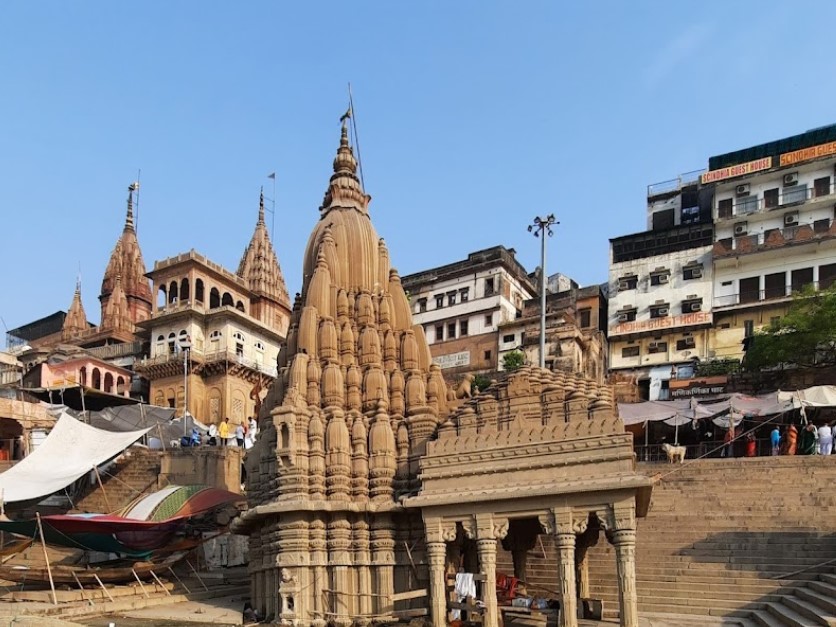Exploring the Spiritual Teachings of Kashi Karvat Temple in Varanasi

Nestled amidst the ancient cityscape of Varanasi, Kashi Karvat Temple stands as a sacred sanctuary where devotees seek spiritual enlightenment and divine wisdom. This revered shrine, steeped in centuries of tradition and devotion, serves as a beacon of spiritual teachings that resonate with the essence of Hinduism. Join us as we embark on a journey to explore the profound spiritual teachings imparted by Kashi Karvat Temple in Varanasi.
Embracing Divine Wisdom:
Kashi Karvat Temple is renowned for its spiritual teachings that guide devotees on the path of enlightenment and self-realization. Rooted in the ancient scriptures and philosophical texts of Hinduism, these teachings offer profound insights into the nature of existence and the pursuit of spiritual liberation.
The Essence of Spiritual Teachings:
-
Dharma (Righteous Living): At the heart of Kashi Karvat Temple's spiritual teachings lies the concept of dharma, or righteous living. Devotees are encouraged to adhere to moral and ethical principles in their daily lives, cultivating virtues such as truthfulness, compassion, and selflessness.
-
Karma (Law of Action): The teachings of Kashi Karvat Temple emphasize the law of karma, which states that every action has consequences. Devotees are encouraged to perform selfless actions (karma yoga) and cultivate positive intentions to purify their karma and progress spiritually.
-
Bhakti (Devotion): Devotion to the divine is central to the spiritual teachings of Kashi Karvat Temple. Devotees are encouraged to cultivate a deep and unwavering love for the divine through prayer, worship, and surrender. Bhakti yoga, the path of devotion, is seen as a powerful means of attaining spiritual union with the divine.
-
Jnana (Knowledge): The pursuit of knowledge and wisdom is highly valued in the teachings of Kashi Karvat Temple. Devotees are encouraged to engage in study, contemplation, and introspection to gain a deeper understanding of the self and the ultimate reality.
Spiritual Practices and Rituals:
-
Meditation: Meditation is a cornerstone of the spiritual practices at Kashi Karvat Temple. Devotees engage in various forms of meditation, including mindfulness meditation, mantra meditation, and visualization, to quiet the mind, awaken inner awareness, and experience spiritual insights.
-
Puja (Worship): Devotees participate in elaborate puja rituals at Kashi Karvat Temple, offering prayers, flowers, incense, and other offerings to the deities. Puja is seen as a way to express devotion, gratitude, and reverence to the divine and seek blessings for spiritual growth and fulfillment.
-
Satsang (Spiritual Discourse): Satsang gatherings are held at Kashi Karvat Temple, where spiritual teachers impart teachings from the scriptures and share insights on the path of self-realization. These gatherings foster a sense of community and provide opportunities for devotees to deepen their understanding of spiritual principles.
Pilgrimage and Spiritual Awakening:
For pilgrims visiting Kashi Karvat Temple, the journey is not merely a physical one but a spiritual pilgrimage of the soul. As they immerse themselves in the sacred atmosphere of the temple, pilgrims experience moments of spiritual awakening, inner transformation, and divine grace that leave a lasting impression on their hearts and minds.
Conclusion:
In conclusion, Kashi Karvat Temple in Varanasi is not just a place of worship but a repository of profound spiritual teachings that illuminate the path to enlightenment and liberation. Through its timeless wisdom, sacred rituals, and spiritual practices, the temple inspires devotees to embark on a journey of self-discovery, inner transformation, and divine realization. As pilgrims explore the spiritual teachings of Kashi Karvat Temple, they are guided towards the ultimate goal of spiritual awakening and union with the divine.
